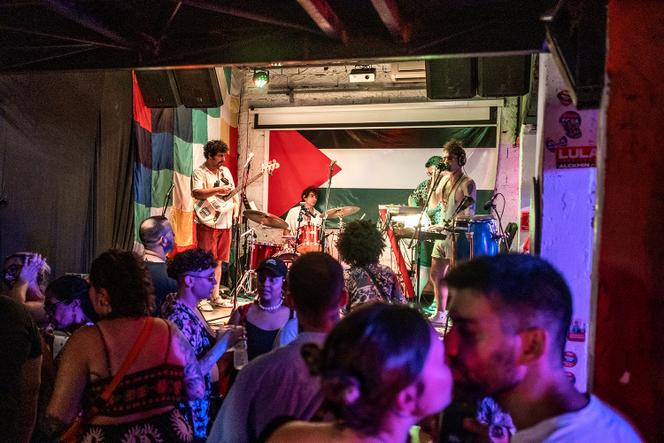


We went to a Jewish school, somewhere in São Paulo. We were asked not to mention its name or location. "Since October 7 and the Hamas attacks, we've been very worried about our pupils' safety," explained the principal, who also requested anonymity. On the surface, however, life goes on at this school in Brazil's economic capital. The children play. The bell rings. "But everyone is devastated. The promise of 'never again' made after the Shoah has been shattered," he said.
At the school, security measures have been stepped up, a teaching team has been set up to hear what the pupils have to say, and several meetings have been organized to discuss the conflict. "The children are in shock. Some have seen images of the attack. They're afraid that an attack like that could happen here," he continued. Some of them have lost loved ones. The school has also brought in children from several Israeli families who were sent to safety in Brazil. "Real refugees... It's unheard of," sighed the principal.
For a long time, Brazil thought itself immune to the convulsions of the Middle East. The Jewish community (made up of 120,000 people, the second largest in Latin America, half of whom live in São Paulo) and the Arab community (15 million people, mostly Syrian-Lebanese, who also have a strong presence in the city) even lived in harmony. The former fled the Inquisition, pogroms and then Nazism; the latter came in search of a better future or to escape the wars in the Levant. Each group integrated, prospered and spawned a host of politicians, artists, writers and business leaders. They never clashed.
Is that now a bygone era? In October, reports of anti-Semitic acts increased by almost 1,000% compared to 2022, according to the Brazilian Israelite Confederation (CONIB). Online, the community is being targeted by a violent campaign associating Jews with Israel and the devastating bombing of Gaza.
"The hate speech that existed quietly has taken on a very worrying dimension," said Claudio Lottenberg, president of CONIB. The National Association of Islamic Law Experts also reported a 900%> increase in Islamophobic acts in October. Women wearing the headscarf are said to be particularly targeted.
It is in this very tense context that several inter-religious gatherings for peace have taken place, such as the one organized on Sunday November 12 at the Dominican parish in São Paulo. Priests, pastors, rabbis, imams and even pais-de-santo (Afro-Brazilian priests) joined forces on stage to call for the preservation of Brazil's fragile equilibrium.
You have 55% of this article left to read. The rest is for subscribers only.
